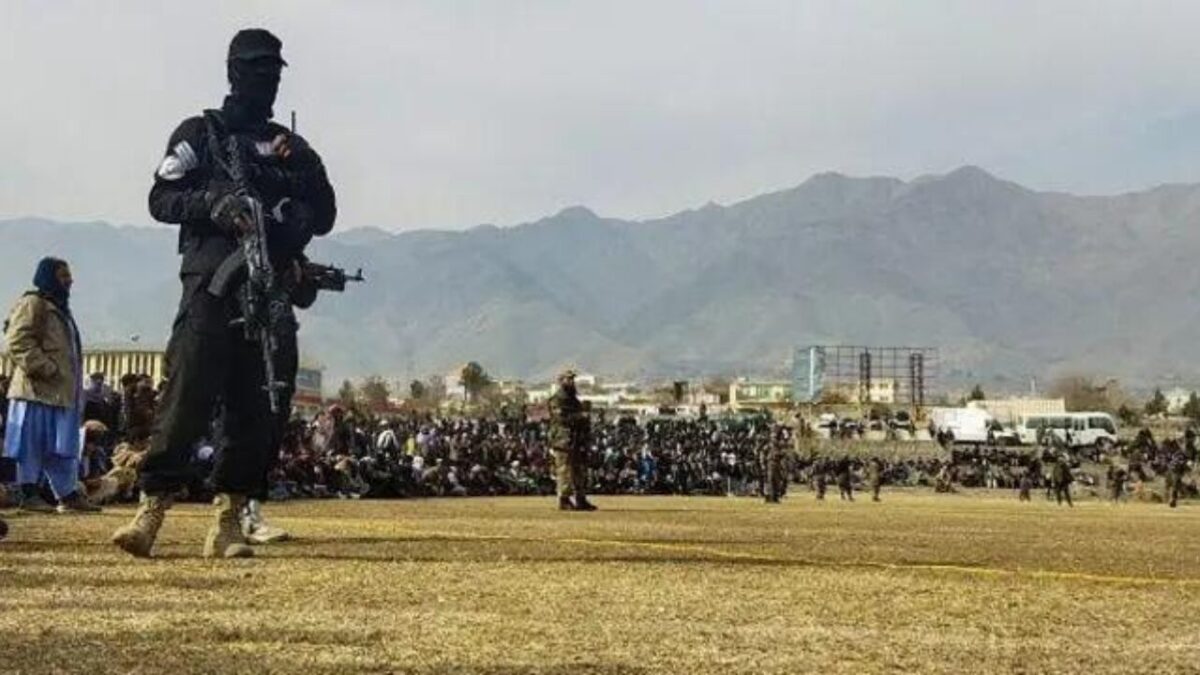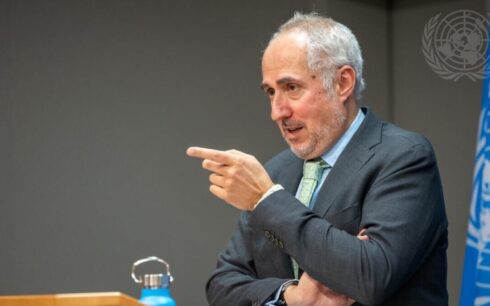Taliban carried out Friday’s public executions in the provinces of Badghis, Farah and Nimroz by firing multiple gunshots at the convicted individuals in front of large crowds, eyewitnesses said, describing the scenes as harrowing and deeply traumatic.
The executions were carried out under the Islamic principle of qisas, or retribution, which permits the family of a murder victim to demand the execution of the perpetrator. In several of Friday’s cases, witnesses said, relatives of the victims were the ones to pull the trigger.
“They had offered blood money, but the family rejected it,” said Salahuddin (a pseudonym), who witnessed one execution in Badghis. “The family of the male victim shot the killer multiple times. It was horrific. I regret going.”
According to eyewitness accounts, the scenes at the stadiums where the executions took place were marked by horror and grief, with some attendees breaking down in tears.
“The young man was very young,” said Mosawer Ahmad (also a pseudonym), who attended the execution in Nimroz. “I hoped the family would change their mind, but they didn’t. It was unbearable. I will never go to one again.”
Those executed in Badghis were identified as Mohammad Rasool of Tagab Alam district and Haider from Darah. In Nimroz, the executed individual was Abdul Qadeer, and in Farah, Mohammad Sadiq. All had been convicted of murder and sentenced to death under Taliban legal rulings.
The executions drew swift condemnation from international human rights groups and the United Nations.
“Capital punishment is inconsistent with the fundamental right to life,” the U.N. Assistance Mission in Afghanistan (UNAMA) said in a statement, calling for an immediate moratorium on the death penalty.
Amnesty International described the executions as “deplorable” and a sign of the Taliban’s ongoing abuse of human rights. “The Taliban de facto authorities continue to flagrantly flout international human rights law,” the group said.
Richard Bennett, the U.N. special rapporteur on the situation of human rights in Afghanistan, echoed the condemnation, calling the executions clear violations of international law. “These executions, as well as corporal punishments carried out in public, must stop immediately,” he said.
Human rights activists warned of the long-term psychological and societal consequences of public executions.
“These acts reflect terror and horror,” said Masouda Kohistani, a human rights activist. “They risk normalizing violence in society. People are still in shock.”
Since the Taliban returned to power in August 2021, this marks the first instance in which four people have been publicly executed on the same day. In total, the Taliban have publicly executed at least 10 individuals across several provinces, including Farah, Badghis, Nimroz, Ghazni, Laghman, and Jawzjan.





